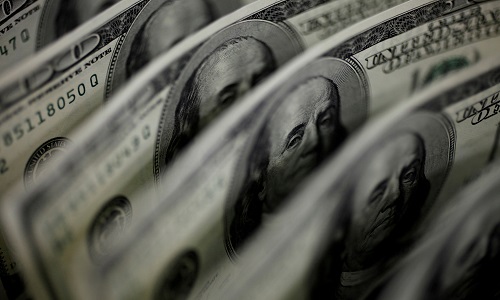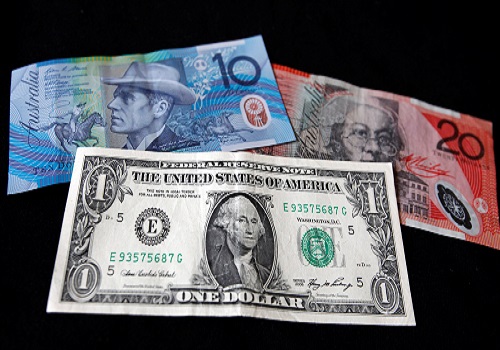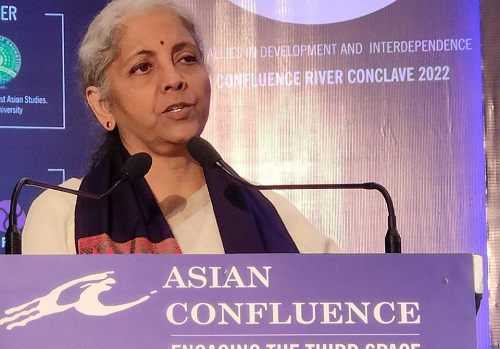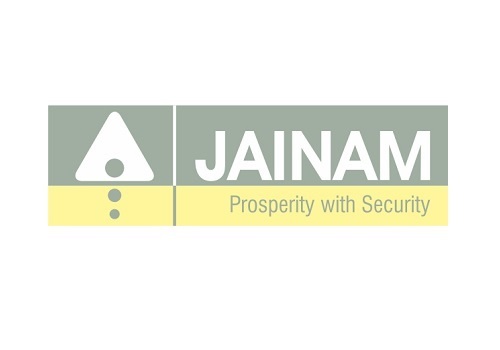Domestic indices snap 2-day gaining streak on weak global cues

Follow us Now on Telegram ! Get daily 10 - 12 important updates on Business, Finance and Investment. Join our Telegram Channel
https://t.me/InvestmentGuruIndiacom
Download Telegram App before Joining the Channel
Indian equity benchmarks snapped a two-day gaining streak to end Wednesday's session nearly a percent lower mirroring losses in global markets as oil prices hit their highest level in seven years, fuelling concerns about rising inflation. Benchmark indices made a positive opening, as sentiments got a boost with Moody's Investors Service changed its outlook on India's sovereign ratings to stable from negative. Besides, it retained the ratings, both on foreign and domestic currencies, at Baa3. However, the benchmarks witnessed a sharp decline in the second half of the session with a spike in volatility coupled with profit booking at higher levels. Cautiousness also came after the Bombay Chamber of Commerce and Industry's survey found that an overwhelming number of exporters are worried about competitiveness as global trade picks up pace after the ravages of the pandemic.
Sentiments remained down-beat in late hour of trading session, after the International Monetary Fund (IMF) expects global economic growth in 2021 to fall slightly below its July forecast of 6%, citing risks associated with debt, inflation and divergent economic trends in the wake of the Covid-19 pandemic. Traders took a note of Care Ratings’ report stated that the weighted average cost for borrowing across the states and maturities has risen to a two-month high of 6.91 per cent, up 6 basis points (bps) over the past week. According to the report, the rise in the yields of state bonds follows the uptick in yields of government securities (G-Secs) in recent days. Meanwhile, Reserve Bank's rate-setting panel started its three-day deliberations on the next bi-monthly monetary policy on Wednesday amid rising global commodity prices and the need to contain inflation at home.
On the global front, Asian markets settled mostly lower on Wednesday as the impasse in the U.S. Congress on raising the debt limit and avoiding a default before the Oct. 18 deadline added to worries over inflation and higher interest rates. European markets were trading lower on concerns that rising inflationary pressures may force central banks to tighten policy sooner than expected. Besides, Eurozone retail sales rose less than expected in August, adding to worries over slowing growth. Back home, on the sectoral front, sugar industry’s stocks were in watch as All India Sugar Trade Association (AISTA) said sugar mills exported an estimated record 7.23 million tonne in the 2020-21 marketing year that ended September 30, with maximum shipments to Indonesia.
Finally, the BSE Sensex fell 555.15points or 0.93% to 59,189.73 and the CNX Nifty was down by 176.30 points or 0.99% to 17,646.00.
The BSE Sensex touched high and low of 59,963.57 and 59,079.86, respectively and there were 4 stocks advancing against 26 stocks declining on the index.
The broader indices ended in red; the BSE Mid cap index fell 1.22%, while Small cap index was down by 0.55%.
The top losing sectoral indices on the BSE were Metal down by 2.98%, Healthcare down by 1.68%, Consumer Durables down by 1.53%, Industrials down by 1.53% and Basic Materials down by 1.47%, while there were no gaining sectoral indices on the BSE.
The top gainers on the Sensex were HDFC Bank up by 1.24%, Bajaj Finance up by 0.18% and HDFC up by 0.08%. On the flip side, Indusind Bank down by 3.38%, Tata Steel down by 2.81%, Bajaj Auto down by 2.39%, Sun Pharma down by 2.39% and HCL Technologies down by 2.25% were the top losers.
Meanwhile, Citing receding downside risks to the economy and financial system, ratings agency Moody’s has upgraded outlook on the Government of India’s ratings to ‘stable’ from ‘negative’, and affirmed India’s sovereign rating. The sovereign rating by Moody’s stands at ‘Baa3’- which is the lowest investment grade, just a notch above junk status.
Moody’s Investors Service has affirmed the country’s foreign-currency and local-currency long-term issuer ratings and the local-currency senior unsecured rating at Baa3. The decision to change the outlook to stable reflects Moody’s view that the downside risks from negative feedback between the real economy and financial system are receding. With higher capital cushions and greater liquidity, banks and non-bank financial institutions pose much lesser risk to the sovereign than Moody’s previously anticipated.
It added ‘And while risks stemming from a high debt burden and weak debt affordability remain, Moody’s expects that the economic environment will allow for a gradual reduction of the general government fiscal deficit over the next few years, preventing further deterioration of the sovereign credit profile’. Moody’s Investors Service had last year downgraded India’s sovereign rating to ‘Baa3’ from ‘Baa2’, saying there will be challenges in implementation of policies to mitigate risks of a sustained period of low growth and deteriorating fiscal position. The outlook on the rating was kept negative.
The CNX Nifty traded in a range of 17,884.60 and 17,613.15 and there were 8 stocks advancing against 42 stocks declining on the index.
The top gainers on Nifty were Tata Consumer Product up by 2.48%, ONGC up by 2.23%, UPL up by 1.66%, Britannia Industries up by 1.31% and HDFC Bank up by 1.10%. On the flip side, Hindalco down by 4.10%, SBI Life Insurance down by 3.64%, Indusind Bank down by 3.39%, Tata Steel down by 3.25% and JSW Steel down by 3.21% were the top losers.
European markets were trading lower; UK’s FTSE 100 decreased 117.75 points or 1.66% to 6,959.35, France’s CAC decreased 134.06 points or 2.04% to 6,442.22 and Germany’s DAX decreased 328.50 points or 2.16% to 14,865.99.
Asian markets settled mostly lower on Wednesday on worries about inflation and surging US Treasury yields with investors await US payrolls data later in the week, while oil prices held near new multi-year highs. Concerns over the debt crises of Chinese property developers and the lack of progress in talks between US lawmakers on raising the debt limit also weighing on market sentiments. Chinese markets remained closed for Golden Week holidays. Japanese shares declined sharply as modest approval ratings for the Japan's new prime minister Fumio Kishida disappointed investors. Hong Kong shares ended down after a survey showed the country's private sector expanded at a slower pace in September with a PMI score of 51.7.
Above views are of the author and not of the website kindly read disclaimer









Tag News

Weekly Market Analysis : Markets strengthened recovery and gained nearly 2% in the passing w...












